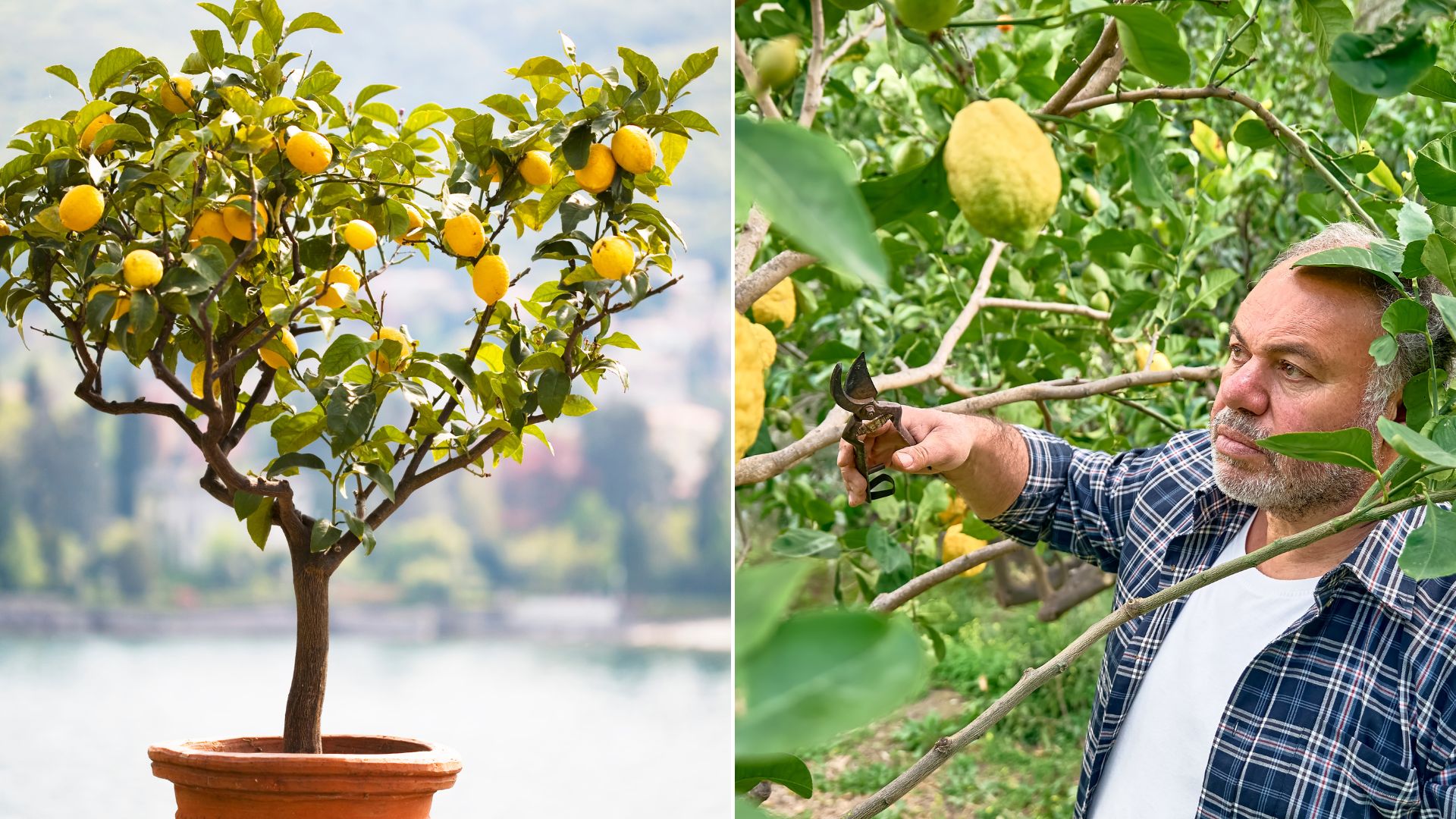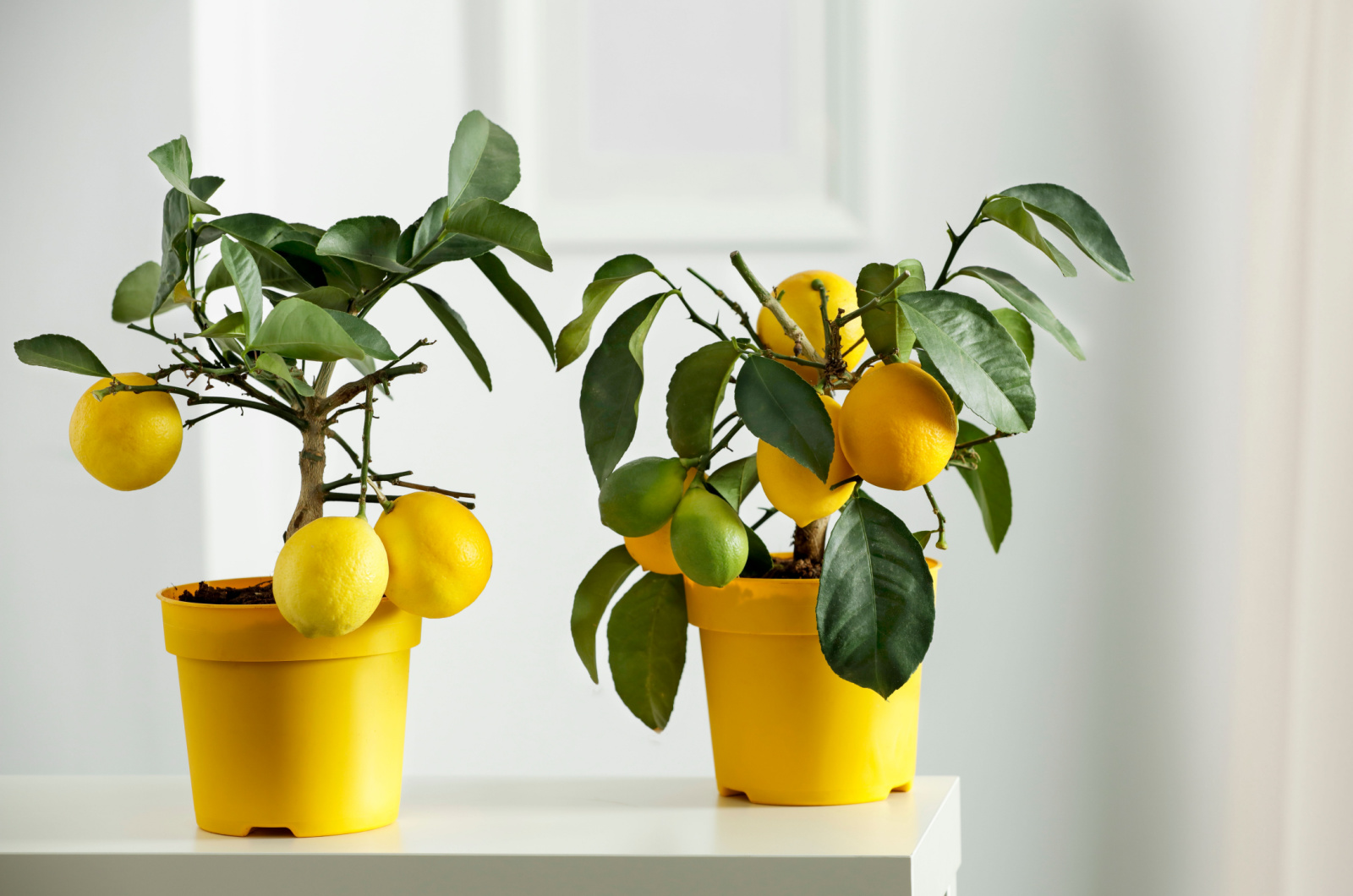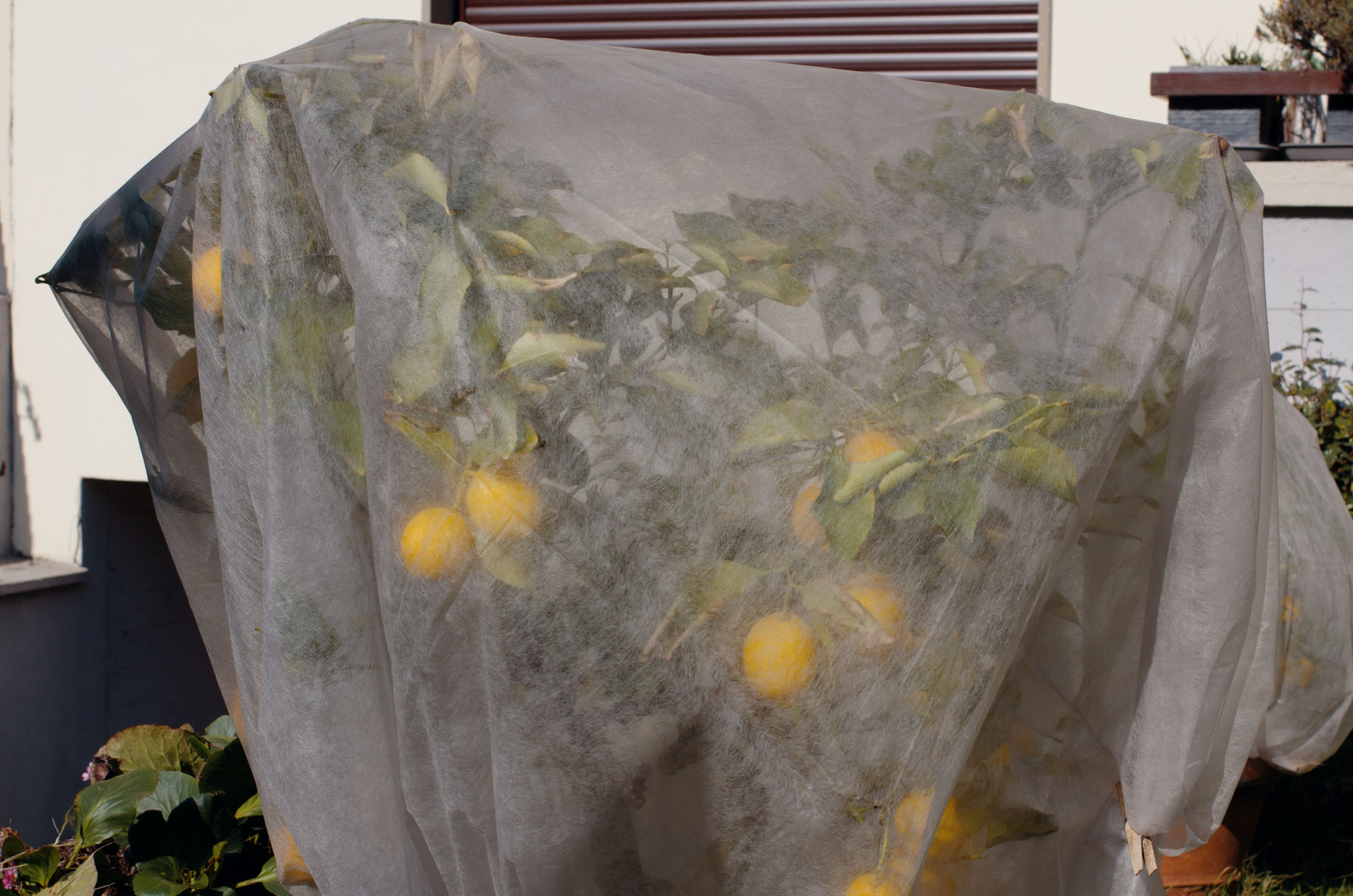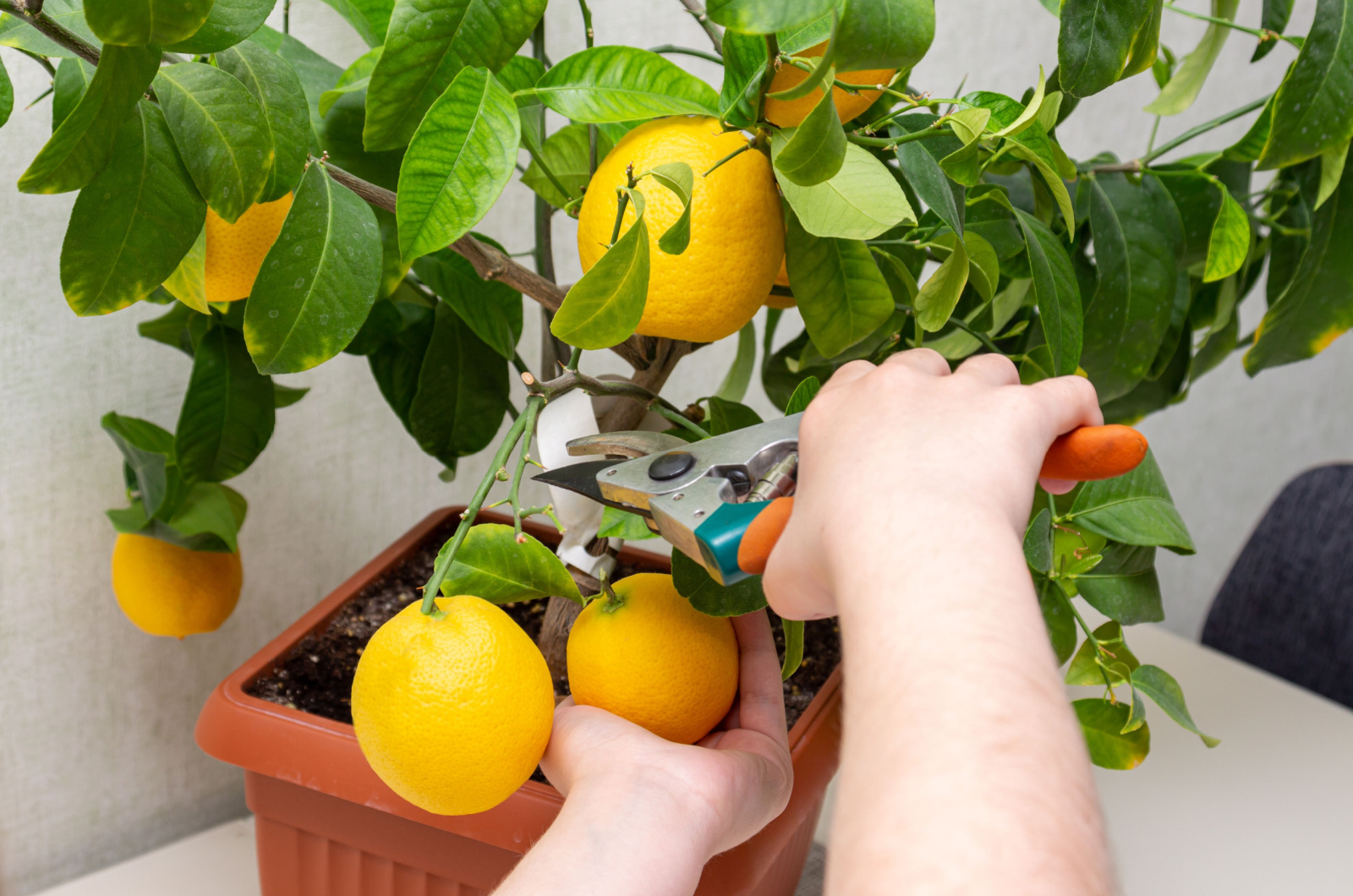We all know that trees aren’t that easily damaged, but cold can threaten even the sturdiest of them. That’s why it’s not surprising that lemon trees can suffer during harsh winters.
Luckily for you, there are some things you can do to make the cold easier on them. You have two options: bringing your lemon trees indoors or overwintering them outdoors.
No matter which approach you choose, there are some things you’ll have to adjust, such as watering, lighting or pruning, etc.
Let’s get started!
Bringing Trees Indoors
There are a couple of things to know before bringing your citrus trees indoors, such as choosing smaller varieties and keeping them in a pot suitable for their size.
But if you only want to keep your tree indoors for the harshest winter months, you can simplify their care.
Take it indoors about a month and a half before the first fall frost or when the temperatures are around 40°F, check it for pests, and give it proper lighting and water.
Here are the details!
Lighting
Before taking your tree indoors, move it to a shadier corner of your garden so that it can adjust to lower light levels once you take it inside.
Then, when you bring your lemon tree indoors, place it in a spot where it can get about 8 hours of bright sunlight (such as a south-facing window), but make sure the location is cool (temperatures between 58-68°F).
Don’t place it anywhere near heat vents, doors, or windows that you’ll open during winter. Temperature fluctuations in these spots will stress out your tree.
Watering
Lemon trees need higher humidity when moved indoors, where the air moisture level is much lower than outside.
Mist it from time to time, but remember to adjust your watering frequency. Only irrigate it once you notice that the top portion of the substrate is dry. This will ensure you don’t accidentally overwater your lemon tree.
However, if you notice your lemon tree leaves curling, it means you’re not watering it enough, so you can safely increase the watering frequency. Your tree won’t die on you easily, so you can make a mistake or two before you get the gist.
Pest Control
Checking your plants for pests is an important step you should take before bringing your plants indoors.
Remove the fallen plant material and debris, check the bottom of the leaves and soil, and repot your lemon tree into a clean substrate if necessary.
The good news is that you can get rid of aphids and similar pests with neem oil; just be patient because it may take a while to get them all.
Overwintering Lemon Trees Outdoors
There are many lemon tree varieties you can choose from, but they’re generally only hardy in USDA zones 9-11.
If you’re lucky enough to live in these zones like I am, or you have a hardier lemon variety, you can overwinter your trees outdoors.
Here are some tips to help you out!
Watering
When leaving your lemon tree outdoors overwinter, don’t forget to water it. Give it about an inch of moisture per week from November until spring. Of course, if it rains a lot, you don’t have to irrigate your tree. Just supplement what you have to, when and if needed.
Always water your lemon tree at its base because this will prevent it from freezing if a light frost hits.
You can also mulch your tree at this point to insulate the roots even more, keep some moisture in, and suppress weed growth.
Pruning
You’ll want to trim your citrus trees a bit when overwintering them outdoors, but it is important to know how to prune a lemon tree to avoid frost damage and increase your harvest.
The best course of action is pruning lemon trees immediately after the harvest, whether it is in summer or winter.
You should also remove all dead, damaged, diseased, or broken branches, but try to do this in late winter or early spring when frost won’t hurt your tree.
Protecting Lemon Trees In Winter
There are a couple of things you can do to protect your plants from frost, such as mulching, using freeze covers, etc. This is especially important if you live in regions colder than zone 9.
Place a frost cover over your lemon trees in the afternoon so that it can trap some heat and keep your tree warm during the night.
And don’t forget to mulch. A 2-4 inch layer of mulch can help insulate the roots and keep them warm. However, keep it a couple of inches away from the trunk of your lemon tree because the moisture it retains can lead to rotting.
This type of protection – using frost covers and mulching – is especially important when overwintering your lemon trees outdoors. But your indoor trees may need some protection, too.
Remember to keep them away from locations with temperature swings, such as windows and doors you constantly open to let winter air in or heating vents. And don’t forget to turn on a humidifier because these trees hate arid air.
There you go! Overwinter your lemon trees indoors or outdoors and keep them safe until spring when they will resume their growth anew.





